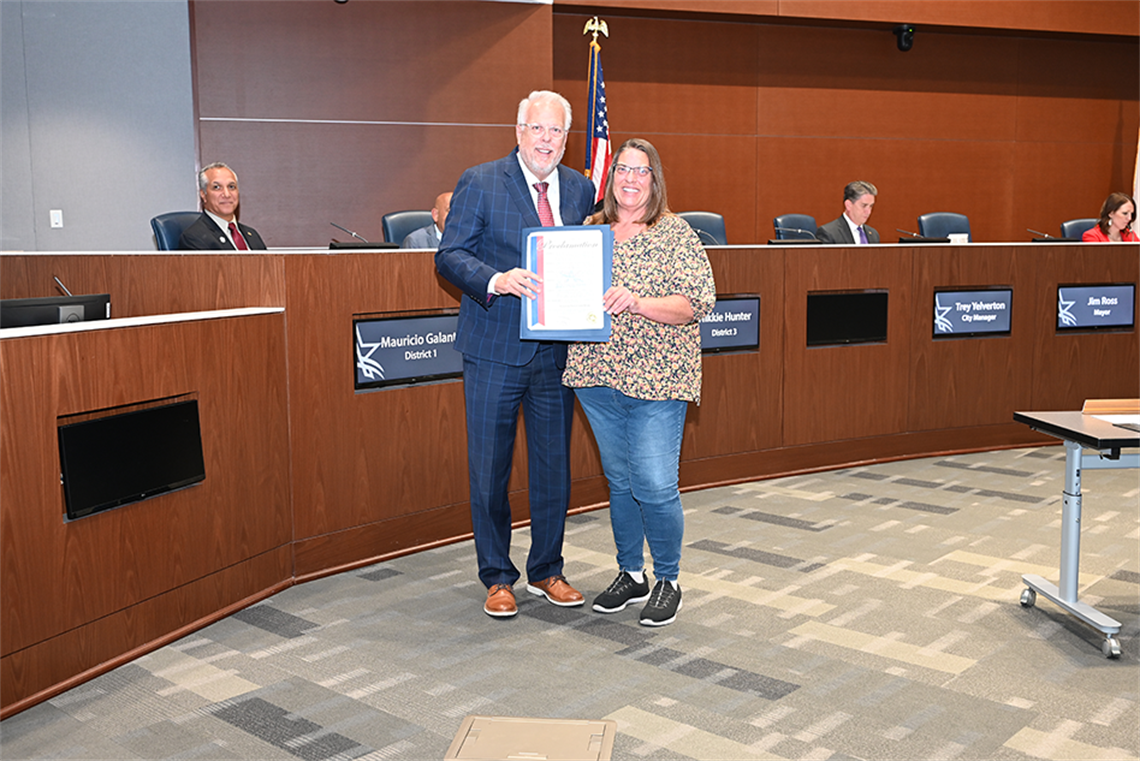Celebrate National Pollinator Week 2025
Published on June 16, 2025

By Melissa Walker, Environmental Education Specialist
On June 10, Mayor Jim Ross and the Arlington City Council recognized June 16–22 as National Pollinator Week. Pollinators play a vital role in our environment by maintaining healthy ecosystems and supporting our food supply. Pollination occurs when pollen is transferred between flowers of the same species leading to fertilization and seed production. Bees, butterflies, moths, birds, bats, beetles and other insects help facilitate this process are called pollinators.
Pollinators provide a wide range of ecosystem services that benefit wildlife and native plant communities in the following ways:
- Native plant diversity offers food and shelter for birds and other wildlife.
- Pollinator habitats help filter stormwater runoff, improving local water quality.
- Diverse plant communities reduce erosion and support healthy watersheds.
- Native plants are drought- and pest-tolerant, helping reduce the need for pesticides and fertilizers and conserving water
- Flowering plants return moisture to the atmosphere, playing a key role in the water cycle.
- Plant communities absorb carbon dioxide and produce oxygen.
In the past year, Arlington’s Pollinators of Arlington Identification Program identified 214 new species of pollinators within city limits. These include 127 species of moths, 8 species of butterflies, 16 native bee species, and 63 species of pollinating beetles, flies, and wasps. Since 2021, the program has identified a total of 1,001 pollinator species, thanks to the efforts of 739 local volunteers, including master naturalists, gardeners, students, and community members. Data is collected using the iNaturalist phone application and which helps track biodiversity across the city.
The Bee City USA committee and the city’s Stormwater Education Specialist also conducted five native bee and pollinator presentations, hosted the 3rd Annual Moth Night at Shari Capehart Nature Preserve, and partnered with Tarrant County College Southeast Campus for a pollinator biosurvey. These outreach efforts aim to increase public awareness of the importance of habitat conservation and the need to reduce pesticide, herbicide, and fertilizer use to protect pollinators.
The City of Arlington encourages residents and local businesses to learn about our native pollinators and the value of creating pollinator habitat throughout our community. For more information visit www.arlingtontx.gov/beecityusa.